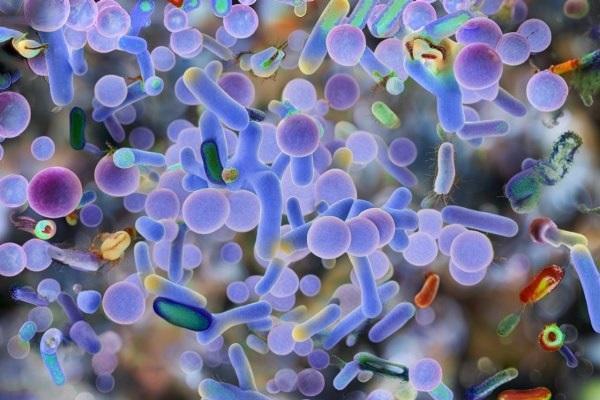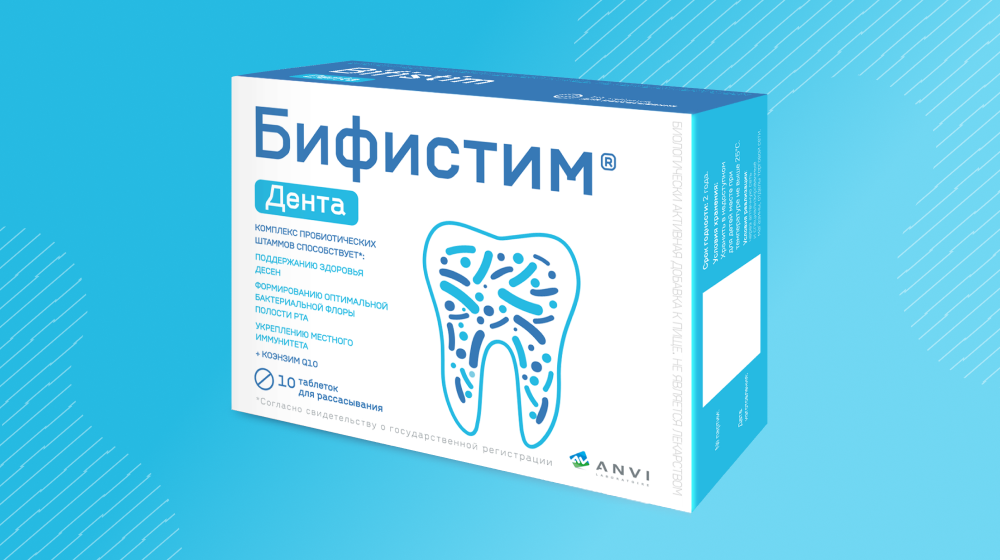In total, about 4 thousand species of microorganisms normally live in the human body. The maximum amount of microflora (or, in modern terms, microbiota) lives in the large intestine, and the greatest species diversity is observed in the oral cavity. That is why it is important for a dentist to understand modern approaches to correcting the oral microbiota.

Microorganisms inhabiting the human oral cavity are diverse and numerous. Normally, their species composition is constant. Bacteria occupy a dominant place both in the diversity of species living in the oral cavity and in quantity. In addition, the oral microbiota also includes viruses, fungi and protozoa. A healthy oral microbiota consists of 100–200+ species of bacteria per individual, belonging to the phyla Firmicutes, Proteobacteria, Actinobacteria, Bacteroidetes, and Fusobacteria. It is regulated by phagocytosis of salivary neutrophils, desquamation of the epithelium with adsorbed microbial cells on it, and natural rinsing with saliva.
Normal microflora in the oral cavity is necessary for the proper functioning of the immune system and protecting the body from various fungal, bacterial and viral infections.
The composition of the oral microflora can be influenced by such internal factors as the presence of chronic somatic diseases, the state of the body’s immune system, and external factors such as taking antibiotics, hormones, chemotherapy drugs, bad habits, including smoking and drinking alcohol, and stress. The composition of microorganisms is also influenced by oral hygiene, the nature of food consumed, as well as the condition of the oral organs.
When exposed to unfavorable factors, an imbalance of the oral microbiota occurs – a change in the composition of microorganisms on the mucous membrane towards an increase in opportunistic pathogens and the appearance of pathogenic microorganisms. An imbalance of the oral microbiota can aggravate the process of tissue healing after surgery or cause protracted inflammatory processes in the oral mucosa and contribute to the chronicity of diseases.
Currently, the main means of preventing microbiota imbalance are oral hygiene practices, such as brushing teeth, cleaning the interdental space and using antimicrobial mouth rinses. A significant number of individuals experience greater exposure to adverse oral microbiota due to factors such as smoking, endocrine hormonal status, medications, or systemic diseases, or do not practice sufficient oral hygiene to prevent it.
One of the modern approaches to correcting the imbalance of the oral microbiota is the use of oral live microorganisms – probiotics, which are active against certain pathogenic strains of periodontal disease and increase the immune response. Also, oral probiotic strains must meet a certain number of requirements, the most important of which is the ability to effectively colonize the oral cavity.
BIFISTIM® Denta– a modern probiotic (dentabiotic*) contains two strains of probiotic lactobacilli: Lactobacillus plantarum and Lactobacillus Brevis, which are natural microbiota of the oral cavity and are found in the saliva of healthy people. Probiotic lactobacilli have good adhesive abilities to oral tissues and retain their effect throughout the day with a single application1.

Numerous clinical studies2 have shown that the strains of lactobacilli included in BIFISTIM® Denta:
- resistant to high concentrations of lysozyme in saliva ,
- have good adhesion and the ability to form accumulations in the oral cavity, which is necessary for successful colonization;
- do not lead to the formation of compounds with an unpleasant odor, help reduce bad breath;
- reduce the level of inflammatory cytokines IL-1β and IL-8, help increase local immunity of the oral mucosa3
One tablet of Bifistim® Denta contains 5 billion beneficial lactobacilli.
BIFISTIM® Dentais available in the form of lozenges and is recommended as a biologically active food supplement – a source of probiotic microorganisms (lactobacillus complex) and Coenzyme Q10.
How to take?
Adults, 1 tablet per day after meals.
It is recommended to keep it in the mouth until completely dissolved.
Duration of use: 1 month.
Contraindications are individual intolerance to the components, pregnancy and breastfeeding.
BIFISTIM® Denta – dentabiotic* for oral health!
Dietary supplement IS NOT A MEDICINE
SOGR No. AM.01.07.01.003.R. 000172.02.22
*Dentabiotic is a probiotic complex for maintaining oral health.
Research links:
1 Bosh M., Nart J, Audvert S et al, Isolation and characterization of probiotic strains for improving oral health. Arch Oral Biol. May 2012; 57(5): 539-49
2 Nart, J. et al. Oral colonization by Levilactobacillus brevis KABPTM-052 and Lactiplantibacillus plantarum KABPTM-051: A Randomized, Double-Blinded, Placebo-Controlled Trial (Pilot Study). J Clin Exp Dent 13, 433–439 (2021).
3 Enyutina E. et al. Proper oral hygiene and oral probiotics improve oral health and reduce the production of inflammatory cytokines in volunteers with moderate levels of malodor: results of an interim analysis of data from a pilot clinical trial. Preliminary data presented at ACCP Congress 2022;
Advertising LLC Marketing Medical Digital, erid:2VtzqwdearN
